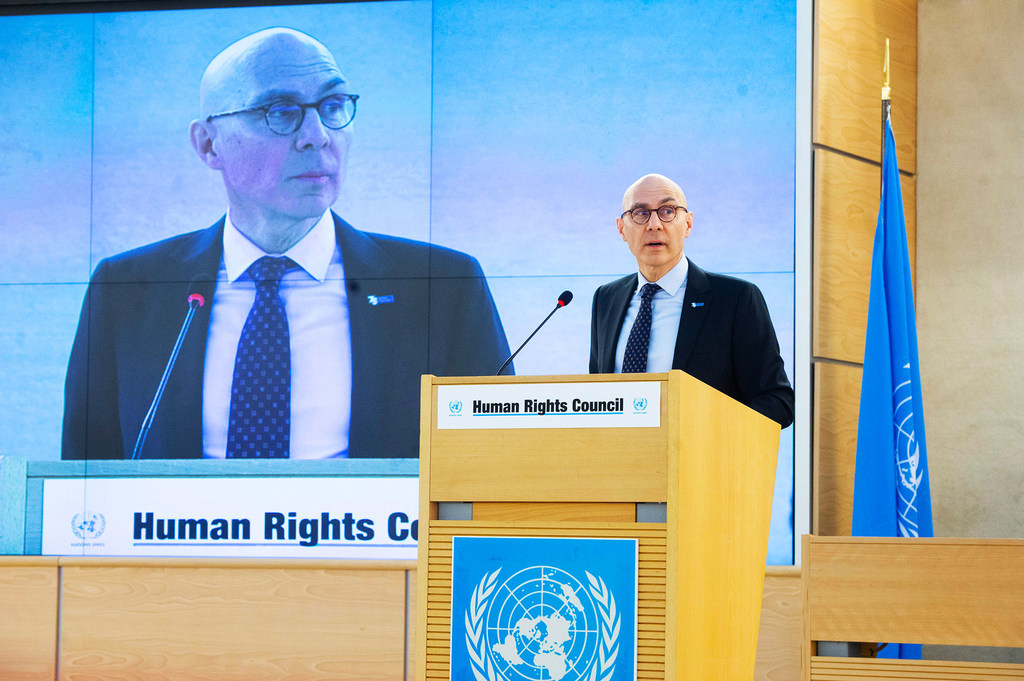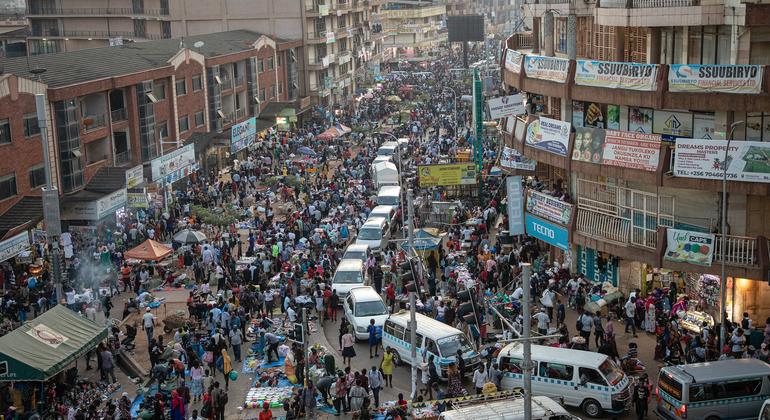The UN rights chief called on Uganda’s President, Yoweri Museveni, not to sign the bill into law, saying that it would mean lesbian, gay and bisexual people in Uganda will become criminals simply “for existing, for being who they are“.
He warned the legislation would lead to “systematic” human rights violations.
Adopted by Uganda’s parliament on Tuesday, the bill proposes the death penalty for the offence of “aggravated homosexuality” and lengthy prison terms for related offences.
According to news reports, anyone simply identifying as gay would be breaking the law, while friends, family and other community members, would have a duty to report any individuals who are in same-sex relationships, to the authorities.
‘Distraction’ from ending sexual violence
Mr. Türk said that crucially, the bill confused consensual relations, which should “never be criminalized”, and non-consensual relations, which “require evidence-based measures to end sexual violence in all its forms – including against children, no matter the gender or sexual orientation of the perpetrator”.
The UN rights chief added that the legislation would be “a massive distraction from taking the necessary action to end sexual violence”.
Going into reverse
According to Mr. Türk, the legislation “runs counter to the country’s international legal obligations on human rights” and is not compatible with Uganda’s “political commitments on sustainable development”, as it would put people’s health and safety at risk.
Journalists, medical workers and human rights defenders could face prison terms “simply for doing their work”, the High Commissioner said.
Homophobic backlash
The UN rights office (OHCHR) notes that the new legislation comes amid a “rise in homophobic rhetoric among politicians, religious leaders, and other sections of Ugandan society”, which has made life in the country less safe for lesbian, gay, bisexual and transgender people.

Volker Türk, United Nations High Commissioner for Human Rights addresses the 52nd Regular Session of the Human Rights Council in Geneva.
Quoting civil society sources, OHCHR says that last month alone, “more than 110 LGBTQI+ people reported incidents, including arrests, sexual violence, evictions and public stripping”.
Mr. Türk strongly pushed back on attempts to justify the legislation “on the basis of ‘values’”, stating that “promoting violence and discrimination against people for who they are and who they love, is wrong”.
‘Negative repercussions’
The High Commissioner also paid tribute to “brave” parliamentarians and civil society representatives who had spoken out against the bill, and the discrimination it aimed to impose.
“This law, if signed into force, will have serious negative repercussions on society as a whole, and erode gains made over years”, he warned.
In his global update to the Human Rights Council earlier this month, Mr. Türk had already expressed concern about the bill as it was tabled in Uganda’s parliament, regretting “rhetoric by politicians that incites hatred, and crackdowns on LGBTIQ+ organizations”.
He commented at the time, “It is unthinkable that we are facing such bigotry, prejudice and discrimination in the 21st century, holding back development of all members of society”.



